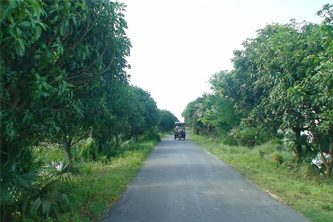RAJSHAHI, Dec 2, 2018 (BSS)-Infrastructure development has been
contributing a lot towards boosting income and reducing poverty of the rural
population particularly women in the region.
Officials of the concerned departments said development of upazila and
union road, bridge and culvert, rural market, sanitary latrine, tube-well
installation and tree plantation are very important for improving living and
livelihood condition of the grassroots population.
To attain the cherished goal, Local Government Engineering Department
(LGED) has implemented a mega project in this region.
More than 282 schemes were implemented in 31 upazilas in Rajshahi, Natore,
Naogaon and Chapinwabganj districts under the project recently.
The seven-year project has been implemented involving around Taka 208.76
crore with the main thrust of attaining a sustainable economic growth and
rural development through improving need-based infrastructure.
Additional chief engineer of LGED Abdul Maleque Sarker told BSS that more
than 69.51-kilometer upazila roads and 228.03-kilometer union roads alongside
1109.85-meter bridges and culverts were constructed for overall improvement
of the transport network of the rural area.
A total of 31 rural markets were improved to create short and long -term
employment opportunity, socioeconomic development and poverty alleviation.
Participation of beneficiaries including women and local government
institutions in planning, implementation and maintenance activities of the
project were intensified.
Community people were imparted training on campaigning and awareness
building on health and nutrition. Through road maintenance, interests of the
beneficiary market laborers group and women market traders along with poor
women traders are being protected.
The project has also strengthened the institutional capacities and skills
of project beneficiaries, local government institutions in planning and
implementing programmes.
Roadside tree plantation activities on the 158.50-kilometer improved roads
have been implemented successfully.
Tubewell and sanitary latrines were provided to more than 7,120 poor and
marginalized households for livelihood and pro-poor institutional
development. Thereby, the outbreak of water-borne diseases is likely to be
decreased. Safe-drinking water supply infrastructure has started addressing
the existing water-stress challenge.
The project is working for capacity building and institutional development
through providing training to the union parishad representatives, LGED
officials and community groups.
Engineer Maleque Sarker said implementation of these schemes in fact
further strengthened the overall activities of local government bodies and
rural markets at the grassroots level.
As a whole, the project contributes enormously to raising standard of
living in the remote villages, said Abdul Mazid, mayor of Kakonhat Pourasava
in Godagari Upazila.



